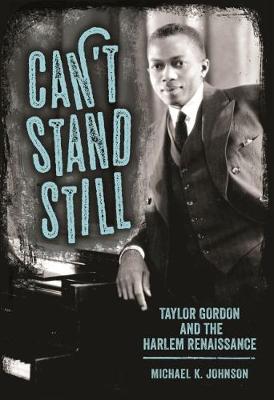Margaret Walker Alexander Series in African American Studies
3 total works
Hoo-Doo Cowboys and Bronze Buckaroos undertakes an interdisciplinary exploration of the African American West through close readings of texts from a variety of media. This approach allows for both an in-depth analysis of individual texts and a discussion of material often left out or underrepresented in studies focused only on traditional literary material. The book engages heretofore unexamined writing by Rose Gordon, who wrote for local Montana newspapers rather than for a national audience; memoirs and letters of musicians, performers, and singers (such as W. C. Handy and Taylor Gordon), who lived in or wrote about touring the American West; the novels and films of Oscar Micheaux; black-cast westerns starring Herb Jeffries; largely unappreciated and unexamined episodes from the ""golden age of western television"" that feature African American actors; film and television westerns that use science fiction settings to imagine a ""postracial"" or ""postsoul"" frontier; Percival Everett's fiction addressing contemporary black western experience; and movies as recent as Quentin Tarantino's Django Unchained.
Despite recent interest in the history of the African American West, we know very little about how the African American past in the West has been depicted in a full range of imaginative forms. Hoo-Doo Cowboys and Bronze Buckaroos advances our discovery of how the African American West has been experienced, imagined, portrayed, and performed.
Despite recent interest in the history of the African American West, we know very little about how the African American past in the West has been depicted in a full range of imaginative forms. Hoo-Doo Cowboys and Bronze Buckaroos advances our discovery of how the African American West has been experienced, imagined, portrayed, and performed.
Born in 1893 into the only African American family in White Sulphur Springs, Montana, Emmanuel Taylor Gordon (1893-1971) became an internationally famous singer in the 1920s at the height of the Harlem Renaissance. With his musical partner, J. Rosamond Johnson, Gordon was a crucially important figure in popularizing African American spirituals as an art form, giving many listeners their first experience of black spirituals.
Despite his fame, Taylor Gordon has been all but forgotten, until now. Michael K. Johnson illuminates Gordon's personal history and his cultural importance to the legacy of the Harlem Renaissance, arguing that during the height of his celebrity, Gordon was one of the most significant African American male vocalists of his era. Gordon's story-working in the White Sulphur Springs brothels as an errand boy, traveling the country in John Ringling's private railway car, performing on vaudeville stages from New York to Vancouver to Los Angeles, performing for royalty in England, becoming a celebrated author with a best-selling 1929 autobiography, and his long bout of mental illness-adds depth to the history of the Harlem Renaissance and makes him one of the most fascinating figures of the twentieth century.
Through detailed documentation of Gordon's career-newspaper articles, reviews, letters, and other archival material-the author demonstrates the scope of Gordon's cultural impact. The result is a detailed account of Taylor's musical education, his career as a vaudeville performer, the remarkable performance history of Johnson and Gordon, his status as an in-demand celebrity singer and author, his time as a radio star, and, finally, his descent into madness. Can't Stand Still brings Taylor Gordon back to the center of the stage.
Despite his fame, Taylor Gordon has been all but forgotten, until now. Michael K. Johnson illuminates Gordon's personal history and his cultural importance to the legacy of the Harlem Renaissance, arguing that during the height of his celebrity, Gordon was one of the most significant African American male vocalists of his era. Gordon's story-working in the White Sulphur Springs brothels as an errand boy, traveling the country in John Ringling's private railway car, performing on vaudeville stages from New York to Vancouver to Los Angeles, performing for royalty in England, becoming a celebrated author with a best-selling 1929 autobiography, and his long bout of mental illness-adds depth to the history of the Harlem Renaissance and makes him one of the most fascinating figures of the twentieth century.
Through detailed documentation of Gordon's career-newspaper articles, reviews, letters, and other archival material-the author demonstrates the scope of Gordon's cultural impact. The result is a detailed account of Taylor's musical education, his career as a vaudeville performer, the remarkable performance history of Johnson and Gordon, his status as an in-demand celebrity singer and author, his time as a radio star, and, finally, his descent into madness. Can't Stand Still brings Taylor Gordon back to the center of the stage.
Hoo-Doo Cowboys and Bronze Buckaroos: Conceptions of the African American West
by Michael K Johnson
Published 1 January 2014

